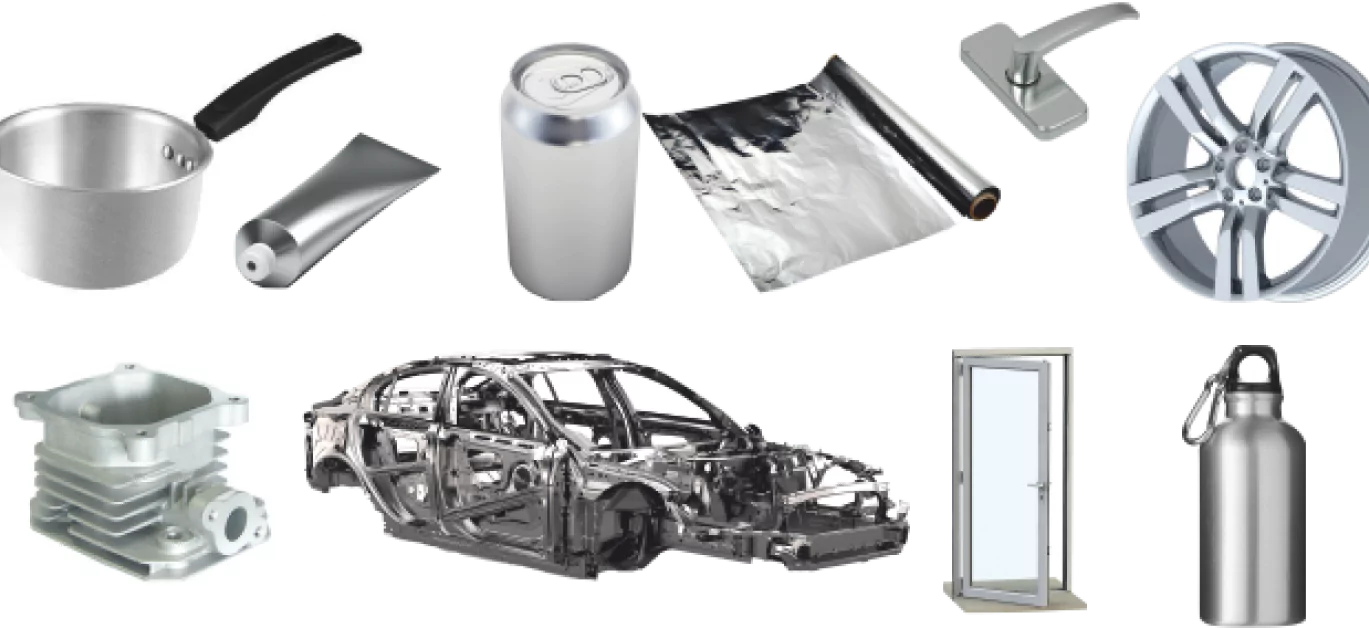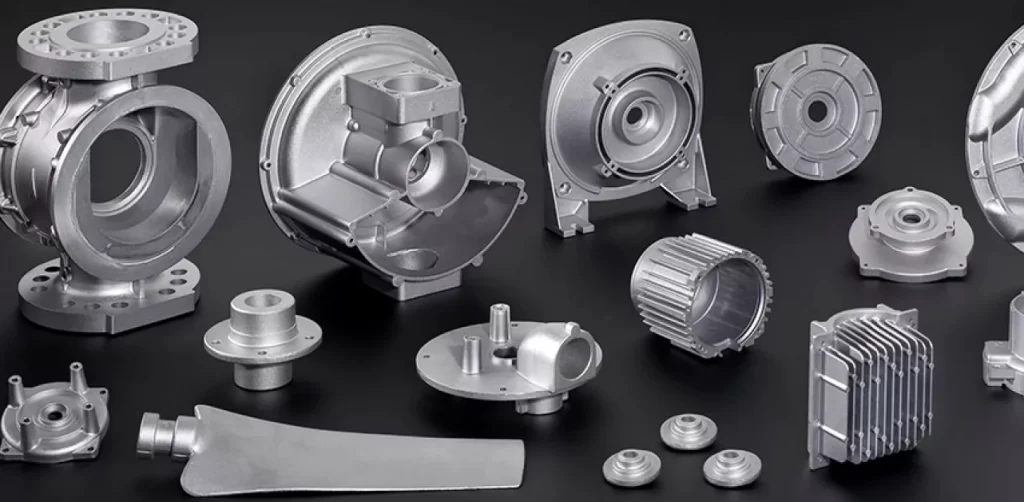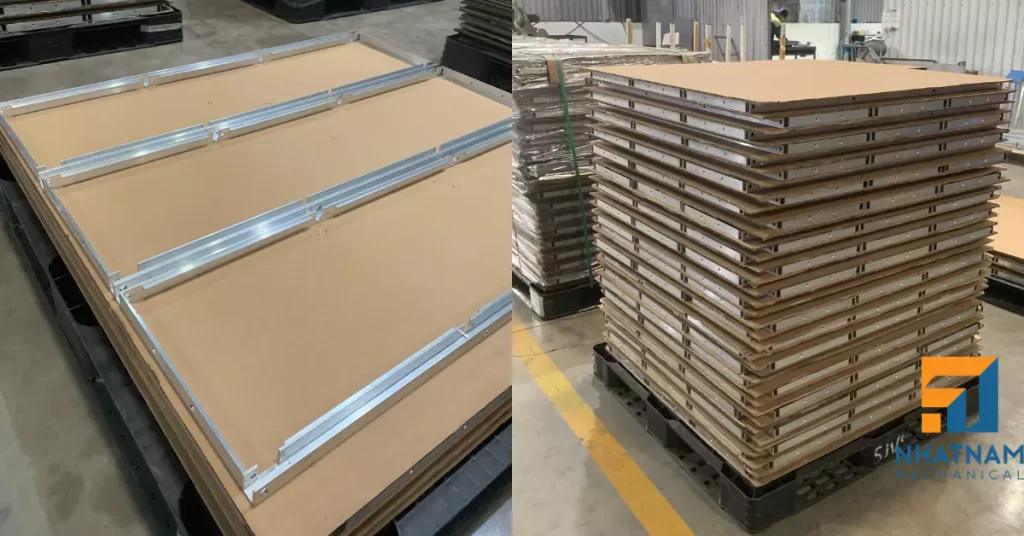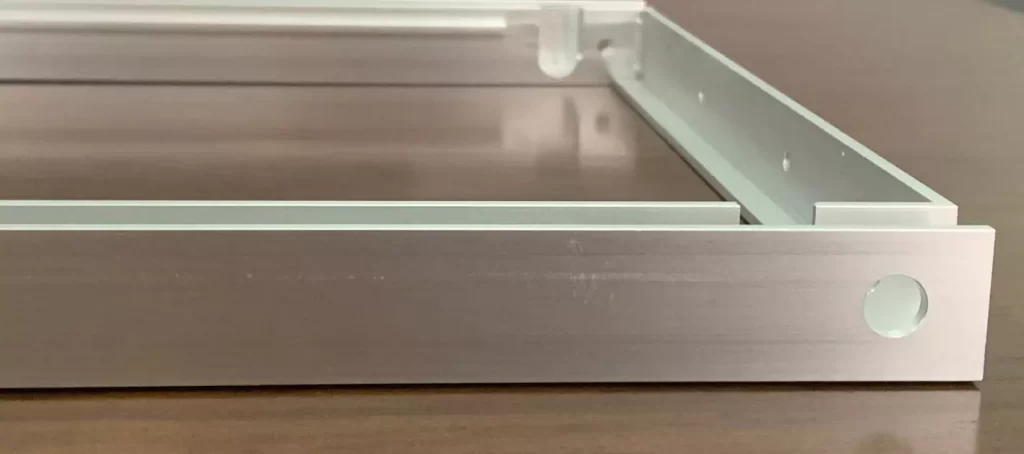
Discover the top advantages of aluminum, from its lightweight properties to its corrosion resistance and recyclability. Learn why aluminum is the preferred choice for various industries.
Aluminum is a silver-white metal, quite soft, very light and can conduct electricity and heat well. Aluminum is non-toxic and has very good wear resistance. Therefore, compared to other metals, aluminum is widely used in life and in popular industries, especially in the automobile manufacturing industry. Aluminum metal is highly reflective as well as has great thermal and electrical properties. Aluminum is a non-toxic and wear-resistant metal. Aluminum is also a metal with many components in it.
Basic properties and characteristics of Aluminum
– One of the most outstanding properties of aluminum is that it is a lightweight metal: Compared to steel, aluminum weighs only ⅓ of the weight. This will explain why aluminum is always widely used in industries manufacturing equipment that requires weight concerns such as doors, aircraft, aerial components, and machinery.
– Aluminum can conduct electricity: Although it is less conductive than copper, aluminum is commonly used when used to transmit the same current.
– Aluminum is flexible: Flexibility makes it convenient to produce products in the form of plates, sheets, tape or melt-formed bars such as door frames. Aluminum door frames of all types are very popular on the market today.
Classification of aluminum
When making aluminum, manufacturers usually add alloying elements (such as Cu, Mn, Mg, Si, Sn, Zn) to improve some properties of aluminum. However, based on the method of manufacture and use, we divide them into two main groups, which are: Wrought aluminum alloy, and Cast Aluminum alloy.
a. Wrought aluminum alloy
Cast aluminum alloys are made by melting bauxite ore in a furnace, then pure aluminum is separated and poured into a mold along with the alloying element to create the desired casting, this process Quite complicated and energy consuming.

b. Cast Aluminum alloy
Forged aluminum alloys are made by melting aluminum ingots with alloying elements, then casting them into large sheets before rolling, forging or drawing into billets of various shapes. Here, cast aluminum alloys often contain more alloying elements, lower melting temperatures, and lower durability than wrought aluminum because all defects cannot be eliminated when casting. Therefore, in fact about 85% of the alloys used are wrought aluminum alloys.
Application of aluminum materials
Durability, lightness, heat resistance and good corrosion resistance are properties that help aluminum be applied in many different fields and become one of the most important materials in modern society. You can easily see the applications of aluminum in houses, cars, trains, airplanes, computers, phones, refrigerators… Join Dinostar Aluminum to learn about the applications of aluminum in 8 common industries. variable with the following article.
a. Application in construction industry
– Thanks to its high aesthetics, light weight, good bearing capacity, durability and adaptability to all environmental conditions, including harsh environments, aluminum metal is widely used in the construction and architecture industries bamboo.
– In construction projects, aluminum is used to make doors, windows, glass walls, railings, sunshades, facades, partitions, awnings, aluminum ceilings, structural aluminum frames, etc. because metal can Anti-corrosion and helps save energy.
– In particular, aluminum is also considered the material of the future because it is 100% recyclable and helps significantly reduce CO2 emissions into the environment.

b. Application in mechanical manufacturing industry
– With good machinability and no rust, aluminum is commonly used in the mechanical manufacturing industry. Aluminum is used to produce: machine components, components in household and industrial electrical equipment, smart electronic devices, CPU heatsinks, computer cases, production of phone billets and parts. details inside or in packaging technology such as cans, wrapping paper…
– In addition, with its good ability to absorb radiation, aluminum is also used to produce the outer covering of artificial satellites. Aluminum is also stronger than plastic, lighter than steel and can absorb and dissipate heat well, so many manufacturers use it in modern flat screen TVs.
c. Applications in the transportation industry
– The transportation industry cannot ignore the use of aluminum metal in its operations. With its durable and lightweight properties, aluminum is used in making parts for cars, trains, ships, and airplanes.
Automobile industry: According to calculations, 1kg of aluminum used in cars reduces the overall weight of the vehicle. Possessing this advantage, many car parts are made of aluminum such as: engine radiator, wheels, suspension system, gearbox, body, hood, car doors, exhaust system, etc. engine cylinder, chassis.
– In addition, good bearing capacity, no deformation or warping, helping to ensure the safety of car internal components is another reason why manufacturers increasingly rely on aluminum.
Rail transport industry: High-speed rail systems are using a lot of aluminum metal. With its lightweight properties, trains using aluminum will weigh less, thereby helping to reduce friction, making the train’s speed faster. A prominent example is the TGV high-speed rail system in France, which has chosen aluminum in its construction.
– Aviation industry: According to calculations, in the total weight of an aircraft, aluminum accounts for 75 – 80%. Hydraulic systems, fueling parts, engine turbines, exhaust pipes, cabin pillars, control chambers, seat frames, decorative details… are parts on aircraft that use aluminum.
Space industry: Accounting for 50 – 90% of the total weight of spacecraft, aluminum material is mainly used in many parts of space shuttles, space telescopes, fuel tanks, rocket heads, and stations. space,…
Outstanding durability in all high/low temperature conditions and in strong vibration conditions is the reason why aluminum is used in the production of aerospace industry parts.
– Marine transportation industry: The corrosion resistance of aluminum is 100 times higher than that of steel. Besides, marine aluminum also has outstanding durability, so if there is a strong collision, it is unlikely to break the ship’s hull. Thereby increasing the lifespan, safety and saving a lot of costs for ship maintenance.
d. Application of aluminum and aluminum alloys in the energy industry
– Application in lighting industry: Thanks to its heat resistance, good thermal conductivity, light weight, corrosion resistance and low price, aluminum is widely used to produce lighting bulbs, LED lighting aluminum bars, LED light bars, wires, and cores. electrical conductors, overhead power lines…
In addition, aluminum also has many other superior characteristics in terms of high performance and recyclability, so it is increasingly trusted and applied in the lighting industry.
Aluminum and aluminum alloys are used to produce overhead power lines.
– Solar energy applications: In the field of solar energy, because of its excellent corrosion resistance, outstanding durability, lightness and high flexibility, aluminum metal is used to manufacture parts and components for energy production. amount of regeneration. More specifically, solar power devices/generators or photovoltaic solar cell frames are all made from aluminum.
In addition, aluminum is also used to protect mirrors/lenses in concentrated solar energy systems because of its good heat resistance. This metal is also an excellent material for wind turbine manufacturing because this product requires light weight and high strength.
– Aluminum is used to build solar power generation equipment, wind turbines…
e. Application of aluminum and aluminum alloys in the medical industry
– Aluminum is non-toxic, resistant to corrosion, safe and does not affect health, so it is used to create artificial limbs and arms for people with disabilities. Not only that, aluminum is used to make medical equipment such as operating room bed frames, carts, medical instruments, trays/containers, ventilators, stretchers, stethoscopes, wheelchairs, and heart monitors. , imaging equipment…
– In addition, with good thermal conductivity properties, aluminum metal is also used in the field of plastic processing industry, especially used to produce personal protective equipment and medical equipment.

f. Applications of aluminum and aluminum alloys in daily life
– In everyday life, you can easily see aluminum used in furniture and household appliances.
Aluminum is durable and highly aesthetic, so it is used to make household items such as: curtain frames, decorative braces, stairs, aluminum pots, cabinets, tables and chairs, beds, tables, shutters. , picture frames, lights, air conditioners, radiators… Besides, aluminum is also used to produce garden furniture such as: folding chairs, mobile folding chairs for cafes, patio swing tables and chairs. garden…
– Furniture products made from cast aluminum alloy have the advantage of high durability and outstanding aesthetics. In addition, aluminum material also helps significantly reduce the weight of interior details, making them less bulky and more seamless.
It can be seen that aluminum’s applications are very diverse in many different industries and fields such as construction, electronics, energy, mechanical engineering, furniture or household appliances. Possessing many outstanding advantages in heat resistance, durability, corrosion resistance and aesthetics, it is not difficult to understand why aluminum is increasingly used in modern society. In particular, aluminum is safe, non-toxic and can be recycled, so using products made from aluminum is also a way for you to join hands to protect the living environment against the unpredictable consequences of climate change!
If you are looking for a reputable and quality sheet metal processing partner in Vietnam, you should refer to Nhat Nam Mechanical. This is one of the long-established companies and has extensive experience in sheet metal manufacturing.

NHAT NAM MECHANICAL CO., LTD contact information: House No. 36, Garland – Phuoc Dien, 72 Duong Dinh Hoi, Phuoc Long B Ward, District 9, Ho Chi Minh City, Vietnam
Contact Japan
Email: tranquy@cokhinhatnam.vn
Tel: +84 938 771 508
Contact English
Email: sale03@cokhinhatnam.vn
Tel: +84 964 092 079
Contact Vietnam
Email: vinhnt@cokhinhatnam.vn
Tel: +84 964 084 479
